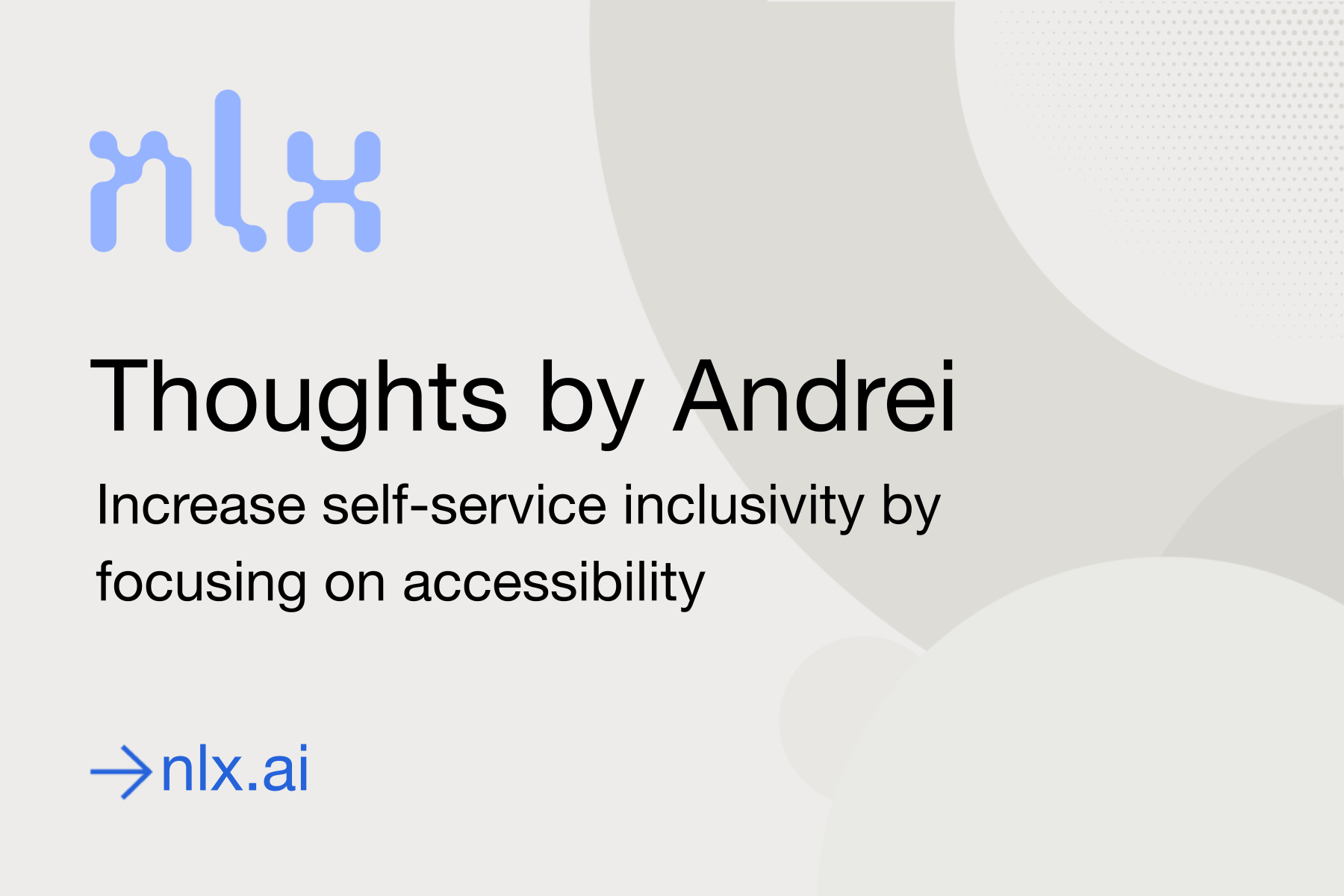
Conversational AI increases inclusion through accessibility
At the center of NLX’s core values is inclusivity. Our inclusivity value draws from a famous Maya Angelou quote - “People may not always remember what you said, but they will always remember how you made them feel. Make each other feel welcome. Make yourself approachable. We expect diverse experiences and value individual input. We give each other the space to be included.”
In today's technologically driven world, Conversational AI has emerged as a powerful tool that not only enhances user experiences but also contributes significantly to inclusivity through accessibility.
In areas of the world where literacy isn’t as widespread, multimodal conversational AI can automate ordering processes and other inquiries. A multimodal conversation featuring voice-guided prompts and on-screen pictures can help power a more connected community with greater access to a wider variety of products and services.
At NLX, we’re already helping Fortune 500 companies automate things like wheelchair requests and service animal registrations for airlines with multimodal conversational AI, making it easier and faster for those requesting the service to get the help they need. Onscreen, end-users experience rich text and images overlayed with helpful voice guidance, answering any questions and noting specifics along the way for a more personalized, engaging experience.
Conversational AI can also help in situations where someone who is normally able to engage in a modality, isn’t able to at the time due to a temporary impairment, like driving. Every safe driver knows you should never text and drive, but for traveling health care providers, that usually means they have to take notes on their visit before or after driving to the next location.
However, conversational AI can help in these situations by automating the “soap notes” process through voice. While driving, traveling health care providers can ask their voice assistant (like Siri or Alexa) to call a specific soap notes line. A voicebot can answer the call, take them through voice-based login systems, and then empower the provider to leave detailed notes, and review everything audibly. Once finished leaving notes, a link can be emailed or texted to the provider for when they arrive at the next location, where they can quickly edit, review and submit.
That said, while spoken conversations with voice AI assistants enable human-computer interaction in the most natural form, not everyone is as fortunate to experience them. which is where making self-service available across any channel is paramount.
While Conversational AI can open the door for many, it’s also important to understand that it can be riddled with certain biases. As a blog from Zendesk points out - “A chatbot is based on any number of inputs we give it, learning from the world the way it is or has been, not as it should be. As a result, we pass on our biases—conscious or unconscious.” Common biases in machine-learning-based AI include accent and dialect, facial and skin-tone recognition, and algorithmic biases, to name a few. While these biases may have been incorporated unintentionally, they can still really alter how customers experience the automated conversation. Zendesk also provides helpful tips to help combat these biases while building your experiences.
As Conversational AI continues to evolve, it promises to pave the way for a more accessible and inclusive future for all, and NLX is committed to continuing to promote diversity, equity, inclusion, and belonging through its technology and company culture.
If you’d like to learn more about NLX’s accessibility capabilities or our commitment to DEIB, contact us here.
